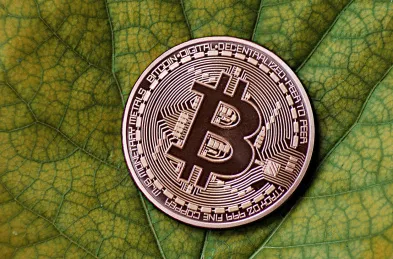Bitcoin and other virtual currencies have been making headlines recently, with their prices skyrocketing and then plummeting. In this blog post, we will explore the current state of virtual currencies, including their benefits, risks, and future prospects. We will also examine the impact of recent events on the virtual currency market and provide our perspective on the topic.
The Rise of Virtual Currencies:

Virtual currencies, such as Bitcoin, Ethereum, and Ripple, have gained popularity in recent years. Their underlying blockchain technology provides a secure, decentralized, and transparent means of transacting business. Virtual currencies have also become a hot topic for investors, with some coins fetching high valuations.
The Benefits of Virtual Currencies:
Virtual currencies offer several benefits over traditional fiat currencies. Some of the key advantages include:
Borderless Transactions: Virtual currencies allow for cross-border transactions without the need for intermediaries, which can save time and reduce fees.
Transparency and Security: Blockchain technology provides a transparent and secure means of transacting business, as all transactions are recorded and stored in a decentralized ledger.
Privacy: Virtual currencies allow users to transact anonymously, providing a degree of privacy that is not available with traditional payment methods.
The Risks of Virtual Currencies:
Virtual currencies are also associated with several risks, including:

Volatility: The prices of virtual currencies are highly volatile, making them unsuitable for long-term investments.
Lack of Regulation: Virtual currencies are not subject to central bank regulation, which can lead to money laundering and other illegal activities.
Security Risks: Virtual currency exchanges and wallets are frequent targets for hackers, and users must take proper security measures to protect their funds.
The Future of Virtual Currencies:
The future of virtual currencies is uncertain, with both bulls and bears predicting different outcomes. However, with the continuous development of blockchain technology and the increasing acceptance of virtual currencies by merchants and investors, we can expect virtual currency markets to continue to grow and develop in the coming years.
Conclusion:
Virtual currencies, such as Bitcoin, Ethereum, and Ripple, have gained popularity in recent years. While they offer several benefits over traditional fiat currencies, they are also associated with several risks. The future of virtual currencies is uncertain, but they are expected to continue to grow and develop in the coming years. Investors must conduct thorough research and understand the risks associated with virtual currency investments before making any decisions.
Bitcoin and other virtual currencies have been making headlines in recent months, with their prices skyrocketing and then plummeting. In this blog post, we will explore the current state of virtual currencies and discuss their recent development trends. We will also examine the impact of these trends on the virtual currency market and provide our perspective on the topic.
The Rise of Virtual Currencies:
Virtual currencies, such as Bitcoin, Ethereum, and Ripple, have gained popularity in recent years. Their underlying blockchain technology provides a secure, decentralized, and transparent means of transacting business. Virtual currencies have also become a hot topic for investors, with some coins fetching high valuations.
Recent Development Trends:
In the past few months, several interesting trends have emerged in the virtual currency space:
Increasing Acceptance by Merchants: More and more merchants are accepting virtual currencies as a means of payment, which is increasing their popularity and usability.
Expansion of the Virtual Currency Ecosystem: The number of virtual currency exchanges, wallets, and other related services is constantly expanding, making it easier for users to buy, sell, and store virtual currencies.
Integration with Established Financial Systems: Virtual currencies are being integrated with traditional financial systems, allowing for easier transactions and access to financial services.
Increased Regulation: Governments and regulatory authorities are starting to take虚拟货币more seriously, putting measures in place to ensure the proper regulation and oversight of virtual currency markets.
The Future of Virtual Currencies:
The future of virtual currencies is uncertain, with both bulls and bears predicting different outcomes. However, with the continuous development of blockchain technology and the increasing acceptance of virtual currencies by merchants and investors, we can expect virtual currency markets to continue to grow and develop in the coming years. It is important to note that virtual currencies are still a highly speculative investment, and investors must conduct thorough research and understand the risks associated with virtual currency investments before making any decisions.
(Images from the internet)





